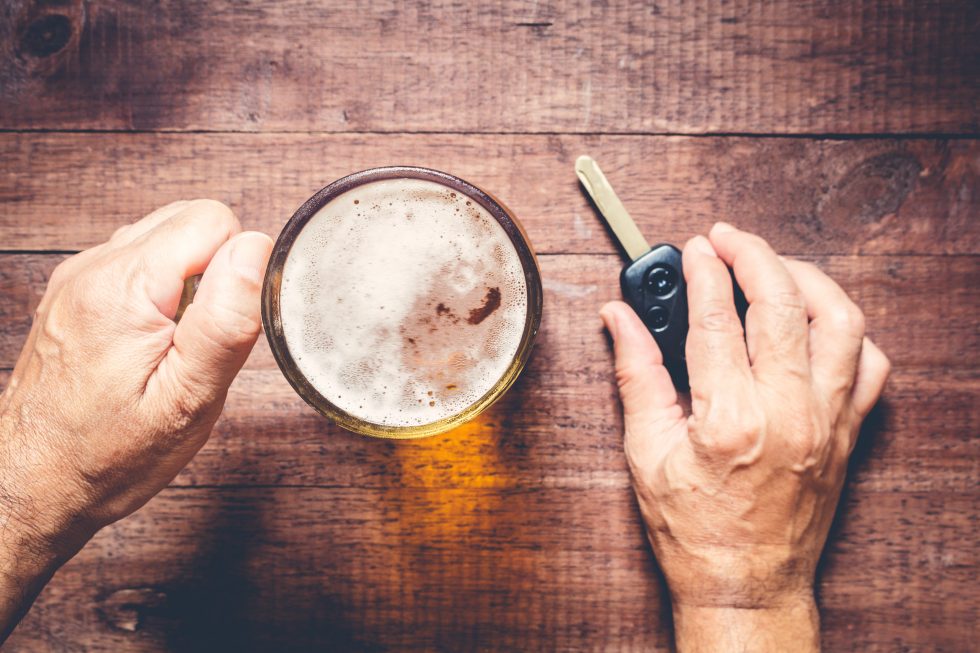A charge of driving under the influence may have you feeling anxious about potential jail time and other consequences, particularly if aggravating circumstances surround your offense. Often, a first DUI winds up being a misdemeanor offense or conviction rather than a felony one.
However, even misdemeanor DUIs carry substantial penalties in Utah, which might include jail time, ignition interlock device requirements, community service obligations, fines and penalty assessments, and DUI school, among others. Sometimes, a first-time DUI may also constitute a felony offense, which may mean additional jail time.

Possible Penalties for a First-Time DUI in Utah
Utah’s DUI laws are among the country’s strictest. The state also recognizes the nation’s lowest threshold for intoxication, meaning you may receive a DUI charge and conviction if your blood alcohol concentration meets or exceeds 0.05%.
While the penalties associated with a first offense DUI conviction are less severe than those associated with a second DUI offense, they are still considerable. Following a first drunk driving conviction, you may face the following:
- A minimum of 48 hours jail sentence (or, in some cases, 48 hours of community service instead of jail)
- Fines and fees
- 120-day driver’s license revocation (a restricted license may be an option)
- Ignition interlock device requirements
- Possible supervised DUI probation
- Alcohol treatment agency assessment
In rare cases, a first DUI charge may be a felony DUI offense. You might receive a felony charge and conviction if someone suffered a bodily injury at the time of your arrest. Felony DUI or aggravated DUI may carry additional criminal penalties. Some of these repercussions are criminal. Others are collateral, meaning they involve restrictions regarding housing, employment, firearm ownership, and so on.
Long-Term Consequences of DUI
The effects of a DUI conviction are far-reaching. Sometimes, you may find that DUI penalties create barriers to employment. Your conviction may also appear during background checks, creating additional hurdles when it comes to finding housing or securing federal financial aid.
Your auto insurance premiums also rise after a DUI conviction. First, though, you must pay a reinstatement fee to get your driver’s license back. According to some estimates, a first-time DUI conviction may raise insurance rates by an average of 54%. You may also have to install an ignition interlock device and pay to have it undergo regular maintenance.
What to Expect After a First DUI Arrest
Following your drunk driving arrest, you may have to go to jail, but you should be able to contact a DUI defense attorney while there. Upon release from jail, find out where your car is and get it back promptly to minimize expenses.
You also need to request a hearing with the Utah Department of Motor Vehicles within ten days of your first DUI arrest to retain your driver’s license and avoid an administrative license suspension. Failing to do so means your driver’s license undergoes automatic revocation. Requesting a hearing gives your attorney a chance to appear before the judge and argue why you should keep your license. Then, you and your attorney may establish an attorney-client relationship, sort through the details of your first offense DUI case, and prepare for your court appearance.
How an Attorney Helps
An experienced DUI attorney understands the intricacies of Utah’s drunk driving laws. They can help you avoid a jail sentence or license suspension, secure a restricted license, plead guilty to a lesser offense (such as impaired or reckless driving) or have your case undergo dismissal.
For example, if you are facing your first DUI case, your attorney may ask if you may plead guilty to driving while intoxicated or impaired driving rather than driving under the influence. Utah does not recognize DWI as a standalone offense, but it allows some DUI offenders to plead guilty to a lesser offense. Your lawyer may help you compare jail sentences and penalties associated with DUI vs. impaired driving and determine whether pleading guilty to a lesser charge might benefit you. The penalties associated with DWI are less severe than those associated with a traditional DUI offense. For example, you may be able to obtain a restricted license that allows you to keep at least some of your driving privileges.
Fighting Your Charges
If you do not wish to plead guilty to a lesser offense or lack the option to do so, you may decide to fight the charge outright. Should you do so, your attorney will likely examine the details of your arrest, reviewing everything from possession of your breath or blood test samples to the arresting officer’s reason for stopping your car (to see if he or she had probable cause).
Your DUI lawyer may also inquire about whether the breath test device you blew into underwent regular and proper calibration. An improperly calibrated device may produce inaccurate results. Your lawyer may also help you review your options and determine what course of action might help you avoid license suspension, jail or conviction, or otherwise lead to the most favorable outcome.

